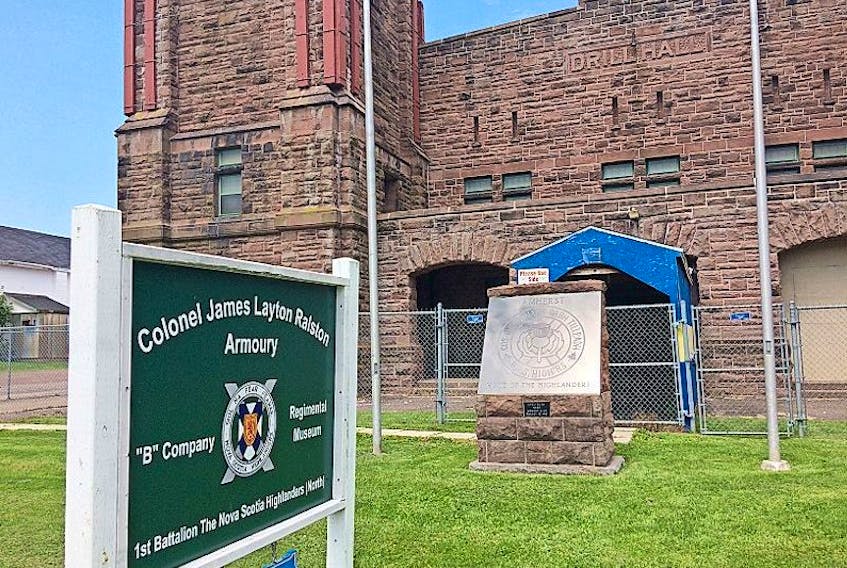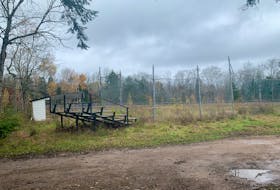AMHERST, N.S. – Will R. Bird was probably one of Canada’s most famous war writers from a century ago.
Unfortunately, because of the passage of time, many Canadians have no idea who Bird was or his contribution to both history and literature.
A University of Moncton English literature professor is hoping to change that by sharing some of Bird’s stories in a new book from Nimbus Publishing, A Soldier’s Place: The War Stories of Will R. Bird.
Thomas Hodd, who edited the stories for the book, will launch A Soldier’s Place at the Col. James Layton Ralston Armoury in Amherst on Thursday at 7 p.m.
“To me, anyone who’s interested in war history or what it was like to experience war would find this book very interesting,” Hodd said. “These were stories written in the 30s and 40s. They’re not violent stories, they’re well crafted, provocative and entertaining. There’s something in the book for everyone. They’re 15 little stories involving some mystery to be solved or obstacle to be overcome.”
Bird, a native of East Mapleton, miraculously survived the horrors of trench warfare on the Western Front during the First World War. Determined to tell the stories of his fellow soldiers, Bird became one of the most prolific authors on the subject – completing both fiction and non-fiction works on the war – with his stories appearing in magazines and periodicals, some of which went out of print and were never digitalized.
Many of the stories Bird told went into obscurity and have been forgotten – or lost.
“I did a lot of research on some war writers and some other veterans and I came across the writing of Will Bird,” Hodd said. “I found a lot of references to the stories he wrote and I was intrigued. I found out Will Bird wrote more than 50 prose stories, or short stories on his war experiences, so I went down the road of gathering these stories. That’s how the project evolved.”
Bird went back to Europe in 1931 by Mclean’s Magazine to write a series called Thirteen Years After. He also wrote for the Saturday Evening Post, Toronto Star Weekly, Family Herald, Maritime Advocate and the Weekly Star.
He also wrote several books with And We Go On, published in 1930, documenting his time in France during the war. Another book, Ghosts Have Warm Hands, recounts his experiences during the war and memorializes his brother, Stephen, who was killed before Bird was allowed to enlist after twice being turned down.
Bird would lose his only son, Capt. Stephen Stanley Bird of the North Nova Scotia Highlanders, during the Second World War and he would go back to writing to express his grief. One of his post-war books, No Retreating Footsteps, told the history of his son’s regiment.
He died in 1984 in Sackville, N.B.
Hodd, who presented an academic paper on Bird’s writing, became more interested in the former soldier and author because his stories were honest tales not only about what it was like to experience the war, but what it felt like to be a soldier.
Most of the war literature of that period, following the First World War, was either a romantic or anti-romantic view of the war. Bird, he said, didn’t want to pick a side, but wanted to show what life was like through the eyes of those who served.
“He wanted to share what it really felt like emotionally and psychologically on the front and how it affected you and others,” Hodd said. “That’s what urged (me) to go forward because it gave so many other insights in a soldier’s life – not only Canadian soldiers, but also a German soldier, (as well as) a young aristocratic woman from Toronto who tried to reconnect with a soldier she met at Union Station.”
Bird, he said, was non-judgmental and didn’t give a slanted view of the war.
“It was just what they experienced and how it happened. He didn’t sugarcoat it but he also didn’t moralize about it,” Hodd said. “Many stories shows a fair number of redemptive qualities throughout the hell that was war, there was gallantry and bravery happening.”
Twitter: @ADNdarrell









